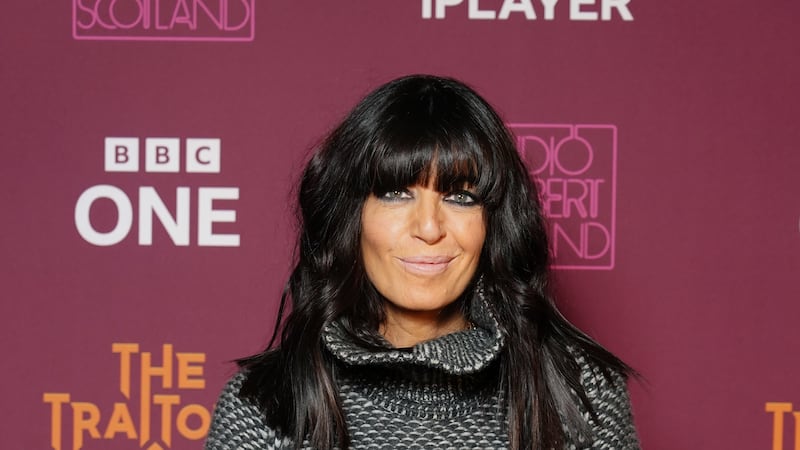GERALDINE Quigley admits that being a teenager in Derry in the early 1980s was "strange and difficult", but also "exciting and exhilarating". It's the fusion of these opposing feelings which form the basis for her debut novel Music Love Drugs War.
A tender, devastating coming-of-age story about friendship, romance, innocence and post-punk music, the book is set in 1981 against a backdrop of intimidation, security alerts, British soldiers patrolling the streets, burnt-out vehicles and the Hunger Strikes.
The book follows the lives of a group of teenagers in 1980s Derry, as they drink, take drugs and when a friend is killed, stunned out of their stupor, two of their gang take matters into their own hands, with lasting implications. It also highlights the stresses upon working-class parents, through the McLaughlin family, helpless to stop their son Paddy enlisting in the IRA.
Much of the early part of the book centres on nights out in The Cave – a dingy bar, where rivalries and hook-ups took place. While The Cave, in the Foyleside area of Derry, did actually exist, Quigley insists that the novel is not autobiographical.
"It is fiction. It’s my impressions of the time. I wanted to tell a story as I saw it from my point of view being a teenager then and be as truthful and unexaggerated as possible. Nothing is over-played or exaggerated.
"It’s based on what we – me, my friends, people we knew and were acquainted with – were like at the time. The characters in the story are an amalgamation of different people, like the people that sat on the table next to us in The Cave.
"This story was written because I wanted to tell it. The Cave might have been a grotty wee place but it was somewhere that politics didn’t enter. There was a lot of friendship there and a desire to keep the real world out. It was an important place for me."
Although she had early thoughts of being a writer, Quigley (55) admits "as a teenager, all ambition was abandoned in the pursuit of boys". She went on to work work in retail for many years and gained a degree in Irish History and Politics at Magee College, University of Ulster, as a mature student. It was in her late 40s that she began writing short fiction and helping edit a local litzine, called Shift.
When her employer became a victim of the recession, Quigley was forced to seek employment elsewhere and found herself supplementing her writing with working in a call centre.
"The first draft of Music, Love, Drugs, War, took me four years to write. when I was in the call centre, and gave me a real purpose. It wasn't a good place to work. I was very down from being there after being redundant and writing gave me something positive to work on for myself."
When a friend send her a link to the first ever Penguin Right Now competition, which aims to nurture and publish writers from under-represented communities, she decided to submit that first draft.
"I met the criteria under being socio-economically deprived because we were on the minimum wage and things were not good. I thought, to hell with it, I will apply and it went from there."
In February 2017 she received word that she was one of 12 people chosen to be mentored and by November that year she was offered a publishing deal by Fig Tree, an imprint of Penguin. Ten drafts later, Quigley is delighted to see the book in print, but even more so to have it hailed as "exhilarating" by best-selling Dublin author Roddy Doyle.
"I love Roddy Doyle's books. My editor actually said my book reminded her of The Commitments, without the slapstick. To have him take time to read it, give me an endorsement and email me personally was amazing and I'm very grateful to him."
Being set in Derry, Music, Love, Drugs, War has also been compared to the Channel 4 series Derry Girls.
"It's a very favourable comparison. Obviously Derry Girls is set 10 years later, but like it and Anna Burns Booker prize-winning Milkman they depict an openness and alternative view of life here," says Quigley, who is still proud to live in Derry in the house she was born in.
Music is central to the novel, as it has been to her life. The youngest of a family of 11, Quigley's older brother Michael Bradley is the bassist of punk band The Undertones and a music-show presenter and producer on BBC Radio Ulster.
So what was it like being the younger sister of an Undertone?
"It was exciting. There was a lot of interest in that music at that time and we basked in his glory and notoriety. You would have got shouted at in the street," she laughs.
And was it a conscious decision not to mention The Undertones, or their famous hit Teenage Kicks, in her novel?
"I deliberately stayed away from what would be expected of Derry cliches, in the same way I don't mention Free Derry corner. But the novel is set in post-punk era when they would have been in England or almost at the point of breaking up. So it's more Dexys and Joy Division."
While Quigley intended to "portray the crack and banter that existed" in Music, Love, Drugs, War, the darkness of the Troubles, given the backdrop of the Hunger Strikes, was never far away.
"The place was in chaos, with a lot of tension and rioting everywhere. You remember the fear of it, even though we normalised it at the time," she says about her own memories of Derry in 1981.
"We watched the news and were fascinated by how long it takes to die of hunger and I remember the bin lids banging on the morning Bobby Sands died and being afraid.
"It was a disturbing and tense time. It radicalised a lot of people and made them make a stand politically. For myself, the people we hung around with, we didn't do what the characters in the book did. But what I focused on was imagining, what if they had? And what were the repercussions?"
Quigley has started writing her second novel – again set in Derry – but in a very different period.
"It's set after the Second World War and about women who are forced to be independent for different reasons," she teases.
:: Music Love Drugs War by Geraldine Quigley is published by Fig Tree and is out now.



